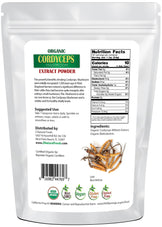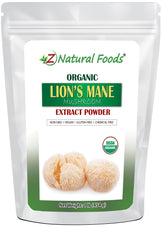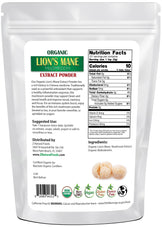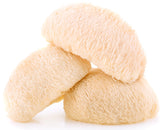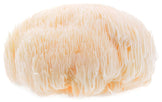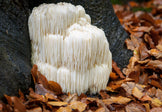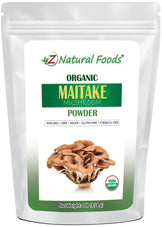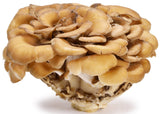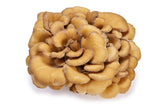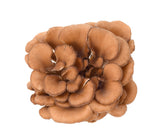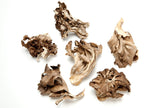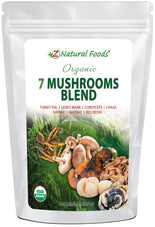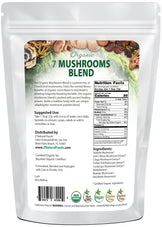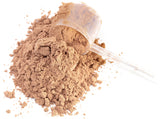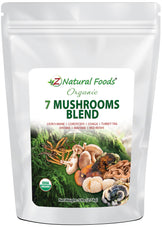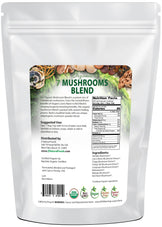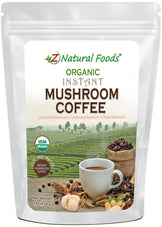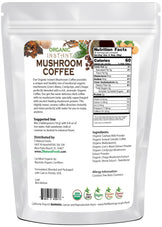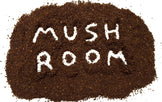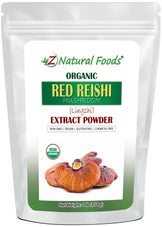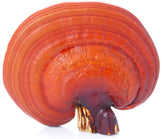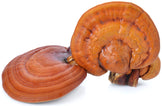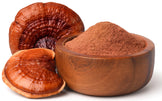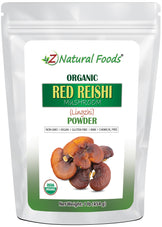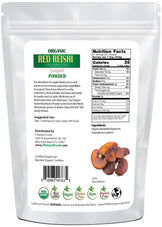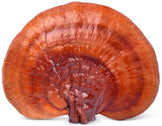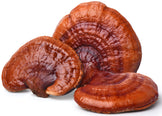Description
Description
The brain is the control center of your body. It helps keep your lungs breathing, heart beating and allows your body to function correctly.
Brain health is essential. It’s this that keeps people eagerly searching for ways to improve their brain health.
Mushrooms have been used as medicine for thousands of years. Known as a superfood, some mushrooms are known to provide more nutrition to the brain than others. Three mushrooms that are good for the brain are:
While some people turn to activities such as Sudoku and crossword puzzles that have proven to stimulate the brain, others prioritize physical activities to impact brain health. Though these steps are essential, a brain-healthy diet may top them all.
According to nutritionists, the most crucial strategy is to stick to a healthy, balanced diet that includes solid macro and micronutrient ratios. And this is where superfoods can become invaluable.
One incredible superfood is mushroom, which isn’t just a famous cuisine around the globe–studies have also shown it may support brain health.
In this article, we take a closer look at the various types of mushrooms that are good for your brain and find out what makes them suitable for your brain health.
Which mushroom is good for the brain?
Mushrooms are more than a delicious pizza topping. They may also help protect against certain problems such as anxiety, Alzheimer’s, and depression. This may be because they contain vital nutrients such as vitamin D, dietary fiber, protein, potassium, complex carbohydrates, selenium, beta-glucans, minerals, and other supportive phytochemicals. In fact, they are called a superfood because they offer such a wide variety of important nutrients.
As you might know, mushrooms come in various types, and each of them has a unique importance to the body.
When it comes to improving brain health, three kinds of mushrooms stand out amongst the 10,000 species of mushrooms, while one, in particular, is most popular for brain health (see answer below):
Lion’s Mane mushroom
Lion’s Mane (Hericium Erinaceus) is a culinary-medicinal mushroom with an Eastern Asia origin. It is characterized by a round shape and long hair-like structures. This mushroom may have excellent effects on brain health, as it may play an important role in repairing damaged neurons within the brain. Also, Lion’s Mane stimulates the synthesis of proteins that support neuron growth, referred to as Nerve Growth Factor (NGF). The most common way of incorporating Lion’s Mane into your diet is by adding it to food in powder form.
Red Reishi mushroom
The Reishi mushroom (Ganoderma lucidum) is essential for your brain health and has been used in Japanese and Chinese medicine (TCM) for hundreds of years. It is known for its ability to balance moods and hormones. Reishi may improve brain function by balancing the endocrine system. This balance helps you keep feeling good even when stressed or depressed. Additionally, Reishi may help improve your concentration and may help you sleep better.
The most common type of Reishi mushroom is Red Reishi powder which may support both mental and neurological well-being. Red Reishi is primarily available as a mushroom powder from red reishi mushrooms found on linden chips from a family of trees called “Tila.”
Cordyceps mushroom
The Cordyceps mushroom is of Chinese origin, and its use in medicine started over 1,300 years ago. It may improve brain function by having anti-inflammatory and antioxidant benefits. Cordyceps may support your brain through its energizing effects from beta-glucans that are known to deliver oxygen to the blood. Cordyceps mushroom is available in capsule and powder form. However, the most common form is a powder that can be taken alone or added to food.
So what is the most popular choice of mushroom for brain health?
Lion’s Mane tops the list. Here’s why:
How does Lion’s Mane affect the brain?
As discussed above, Lion’s Mane is one of the most critical mushrooms for brain health. It affects the brain in the following ways;
- Fostering the production of the bioprotein nerve growth factor (NFG) and myelin
Bioprotein nerve growth factor (NFG) and myelin are insulators around nerve fibers and are critical to the brain’s health. An imbalance in these insulators can contribute to neurological issues such as Alzheimer’s and multiple sclerosis. Lion’s Mane mushrooms may help maintain this balance making them stand out among other brain foods.
- Improve cognition
Though research is still being carried out, an experiment conducted on animals showed that this miraculous mushroom might improve cognition. This is through increasing concentration, reducing irritability, and alleviating anxiety.
- Reverses neurological disorders
Unlike other kinds of mushrooms, Lion’s Mane mushroom may stimulate NGF synthesis in people with a neurological disorder and may help with the damage. This shows that Lion’s Mane mushroom may help prevent brain-related problems such as Parkinson’s, Alzheimer’s disease, and Dementia, but it may also be helpful in providing solutions.
How long does it take Lion’s Mane to work?
Much like using any other medicinal mushroom mix or herbal supplement, the health benefits of Lion’s Mane will take a bit of time to show. However, in most cases, Lion’s Mane will take around two weeks before you may start noticing or feeling any difference. However, this is different from one individual to another.
Many benefits come with mushrooms, especially when it comes to brain health. If you are wondering how to take the mushrooms, it is advisable to start by adding a spoonful of your preferred mushroom powder to a hot cup of water. After this, add it to your favorite drink. Also, you can add a spoonful to your soup or breakfast smoothie if you want to create some variation.
For Bulk inquiries and custom formulations click here: https://www.znaturalfoods.com/pages/bulk















